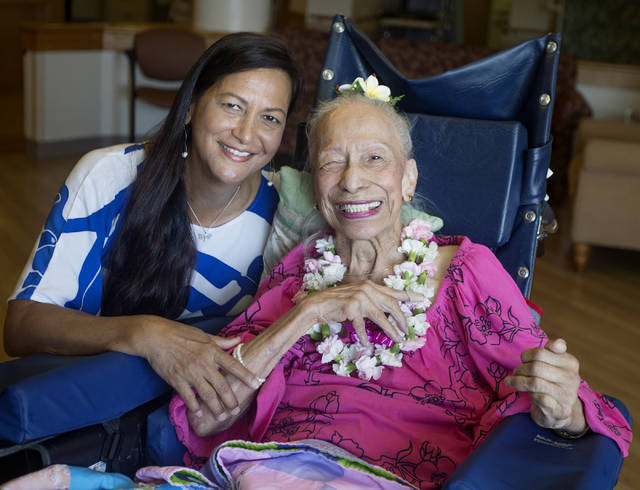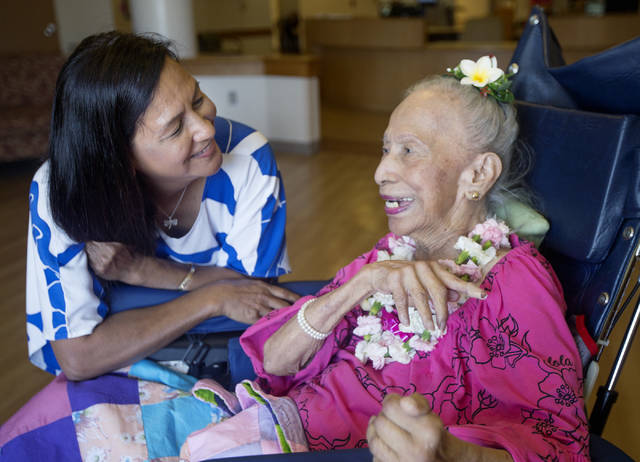HILO — Hilo resident Mabel Jaentsch has a few tips for being a good mom.
HILO — Hilo resident Mabel Jaentsch has a few tips for being a good mom.
First, be prepared to repeat yourself, until your kids “get it in their heads.” Second, find a good mate. Third, when things get tough, seek the Lord.
And finally — most important of all — don’t forget to love.
“The main thing is to love your kids, and they will love you back,” Jaentsch said in an interview last week, a few days before Mother’s Day. “You can pound them on the head a million times, and they might not listen. You’ve got to show them love at the same time. It’s all about love.”
Motherhood has been deemed by some as the world’s toughest job. Jaentsch, now 88, has toiled away at the position for decades.
She became a mom at age 20. She’s now a parent to five, a grandmother to 14 and a great-grandmother to nine.
These days, Jaentsch resides at the Yukio Okutsu Veterans State Home in Hilo (she retired to the Big Island in 1990). Some of her children and grandchildren have since scattered. Several remain on the island, however, including her youngest daughter, Debbie, 60, who visits her mom almost every day.
“My mom, for all of us, we see her as the patriarch in our family who kept us grounded in the Lord,” Debbie said. “Growing up, we got disciplined, but (that allowed us) to make choices that were good for us. It was because of the example we had at home.”
Jaentsch and her husband, Richard, raised their family in a modest three-bedroom home on Oahu. They married when Jaentsch was 20 and remained together nearly seven decades — until Richard’s death in 2015.
Richard forged a career at Chevron, and Jaentsch worked for many years as a nurse. She became a stay-at-home mom once her oldest son, William (now deceased), was born.
“I was 20, and I had a first child,” Jaentsch said. “So I wanted to take care of my first child, and I stayed home to take care of him. I really loved my children, and I wanted to bring them up well.”
As the years progressed, even while raising five little ones, Jaentsch hardly slowed down.
Debbie remembers being a small child and watching her mom open her own business — an employment agency in Kailua on Oahu. The business eventually closed, and Jaentsch returned to nursing. She later went to college and completed a bachelor’s degree in art.
Over the years, the Jaentschs enjoyed staying active together as a family, including frequent trips to the beach, tinkering around with motorcycles, visiting with friends, and making use the family’s boat.
Jaentsch and her husband were stern at times: There was no play before work was completed, and dinner was on the table at 5 p.m. sharp, Debbie recalls.
“If you were late for dinner, kitchen was closed,” she said. “It was, ‘You eat, you’re home for dinner.’ That’s how we were raised, and I’m (now) the same way.”
To this day, Debbie said she looks at her mom as a role model. When she found herself in conflict, for example, Jaentsch would prompt her to mihi — which she said is the Hawaiian word for “to apologize” or to heal the relationship.
“She would always tell us, ‘Oh, forgive,’” Debbie recalls. “She’d say, ‘You have to forgive and you have to love.’ And she would always foster that love within our family.”


